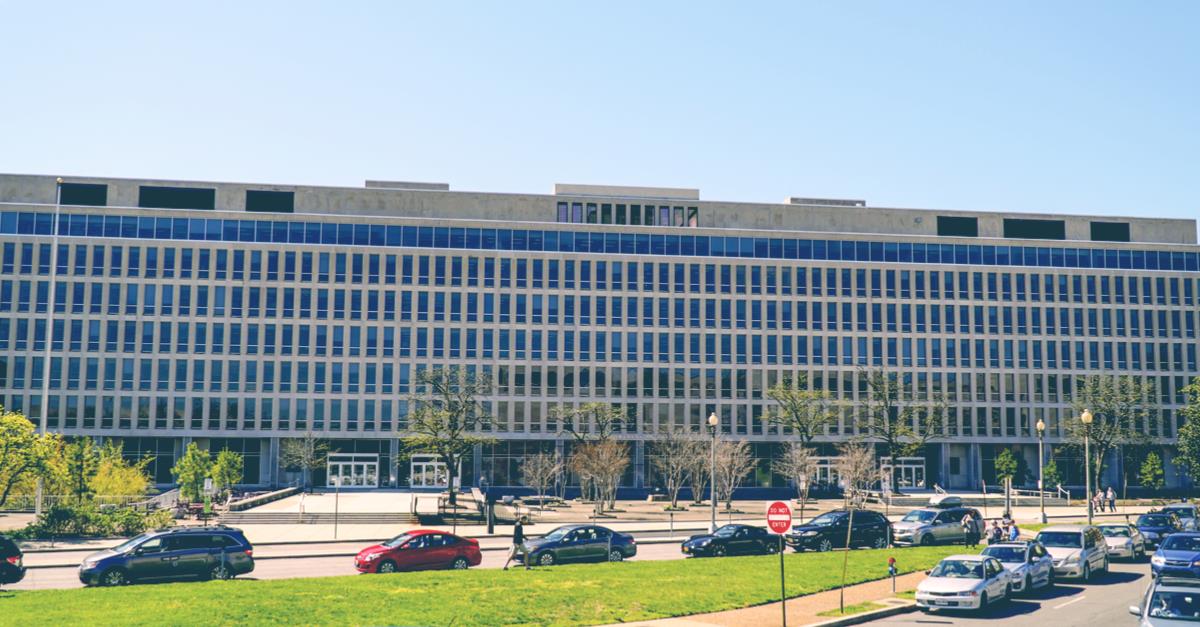Dept of Education Expands Focus on Enforcement and Consumer Protections for Students, Parents, and Borrowers

Today, U.S. Secretary of Education Betsy DeVos announced a stronger approach to how Federal Student Aid (FSA) enforces compliance by institutions participating in the Federal student aid programs by creating stronger consumer protections for students, parents, and borrowers against "bad actors." FSA is an office within the U.S. Department of Education.
"Protecting students has always been my top priority," said Secretary DeVos. "This new approach will enhance our efforts on our oversight responsibilities, including enforcement against bad actors, such as illegitimate debt relief organizations, schools defrauding students and institutions willfully ignoring their Clery Act responsibilities."
Dr. A. Wayne Johnson, the new chief operating officer at FSA, recently began transforming the oversight function—broadening its scope, increasing its capacity and adopting a more sophisticated strategy—while adding several key senior executives to help lead and implement a more comprehensive, broader approach to the oversight of the federal student aid programs.
"FSA recognizes that there are many quality institutions that participate in the Federal student aid programs, along with many third-party service providers that are committed to effectively administering and operating the programs," said Dr. Johnson. "But FSA has an obligation to ensure that any organization affiliated with these programs understands its responsibilities and complies with Federal student aid statutes, regulations and other related consumer protection laws."
"We will not allow bad actors to harm students, parents, borrowers, and taxpayers," Dr. Johnson continued. "We will enforce what is right for students at every turn of their student aid life cycle, regardless of whether they are applying for, receiving or repaying aid."
Under Dr. Johnson's direction, FSA has established an integrated system of complementary oversight functions to ensure compliance by all participating parties. Under this approach, oversight begins with proactive risk management to identify and mitigate risks before they pose a threat. These efforts are bolstered by comprehensive communications and executive outreach to ensure parties and their leaders understand their responsibilities, the consequences of non-compliance and appropriate remedies.
"We have amplified our outreach to program participants to ensure they understand these rules and their status," said Dr. Johnson. "If we determine parties are out of compliance, we will use the authority delegated to the Secretary—and in turn to Federal Student Aid—to do right by students, borrowers, and taxpayers, including bringing them into compliance or, if necessary, revoking their eligibility to participate in the student aid programs."
To support this work, FSA has added several new leaders across the organization in the areas of enforcement, outreach, communications, and risk management who bring a wealth of expertise to FSA and augment the experienced and committed staff already in place.
Dr. Michael Dean is joining FSA as the chief enterprise risk officer. He will lead the team that proactively identifies, assesses and monitors risks enterprise-wide, including fraud-, cybersecurity- and compliance-related risks. Dr. Dean's team works with senior leaders across FSA to effectively manage risks in order to fulfill FSA's mission.
The critical work of FSA's compliance office will continue to be led by career veteran Chief Compliance Officer Robin Minor. Her team of nearly 400 oversight professionals monitors schools' and other financial institutions' compliance with Title IV laws and regulations. The compliance group conducts hundreds of institutional program reviews, resolves audits and performs other activities each year. The team will be working to communicate more frequently and proactively with schools and other institutions to enable these organizations to more quickly learn of the status of reviews and audit resolutions, as well as address any identified deficiencies more efficiently.
Dr. Charles Patterson is joining FSA as the senior advisor for executive-level compliance and enforcement outreach. He will focus on communications with leaders at colleges and universities, as well as on outreach to university systems; higher education organizations; and other federal, state and local stakeholders with a shared interest in protecting students, parents, and borrowers.
Dr. Julian Schmoke, Jr. is joining FSA to lead enforcement activities. In addition to a track record of successfully advocating for students for more than 20 years, he brings experience in higher education leadership, instruction, and accreditation, including serving in an academic capacity at DeVry University, where he ensured the delivery of a quality education to students. Dr. Schmoke will lead a team focused on identifying, investigating and adjudicating statutory and regulatory violations of the federal student aid programs and on resolving borrower defense claims. Additionally, the team led by Dr. Schmoke will play a central role in coordinating efforts to prevent third-party companies associated with student aid programs from harming students, parents, and borrowers.
Chris Greene is returning to FSA to head the communications, outreach and customer experience teams. He brings nearly 20 years of student aid, government and communications experience to the organization and will be responsible for ensuring that FSA's communications infrastructure serves the needs of all stakeholders.
FSA will continue to offer in-person and web-based technical assistance to schools and will continue providing information, training and early intervention support directly to financial aid professionals to help schools meet their compliance obligations.
FSA's proactive work will continue to be informed by customer input—including, complaints and allegations of suspicious activity through the FSA feedback system, available at StudentAid.gov/feedback—and supported by coordination with other stakeholders, including accrediting bodies, the Federal Trade Commission and the U.S. Department of Justice.